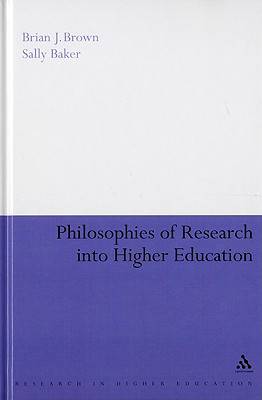
- Afhalen na 1 uur in een winkel met voorraad
- Gratis thuislevering in België vanaf € 30
- Ruim aanbod met 7 miljoen producten
- Afhalen na 1 uur in een winkel met voorraad
- Gratis thuislevering in België vanaf € 30
- Ruim aanbod met 7 miljoen producten
Zoeken
Omschrijving
Research in higher education could be more useful, innovative and better designed if we were clearer about the philosophical and epistemological basis of the theories that underlie our research methods. People who have to interpret research would do a better job if they were able to interrogate research more critically and appreciate its strengths and weaknesses. This volume provides this information for an audience of researchers, policymakers, students and lecturers in higher education.
The authors seek to create a dialogue with the reader about issues relevant to the philosophy of research and stimulate interest in how philosophy plays out in the real, everyday, political world, not least in education. Unlike many existing volumes on the market, this book creates a space in which readers can use the tools for thinking that the authors describe to interrogate their own experience.
The authors seek to create a dialogue with the reader about issues relevant to the philosophy of research and stimulate interest in how philosophy plays out in the real, everyday, political world, not least in education. Unlike many existing volumes on the market, this book creates a space in which readers can use the tools for thinking that the authors describe to interrogate their own experience.
Specificaties
Betrokkenen
- Auteur(s):
- Uitgeverij:
Inhoud
- Aantal bladzijden:
- 202
- Taal:
- Engels
- Reeks:
Eigenschappen
- Productcode (EAN):
- 9780826494177
- Verschijningsdatum:
- 14/11/2007
- Uitvoering:
- Hardcover
- Formaat:
- Genaaid
- Afmetingen:
- 156 mm x 234 mm
- Gewicht:
- 462 g

Alleen bij Standaard Boekhandel
+ 678 punten op je klantenkaart van Standaard Boekhandel
Beoordelingen
We publiceren alleen reviews die voldoen aan de voorwaarden voor reviews. Bekijk onze voorwaarden voor reviews.








